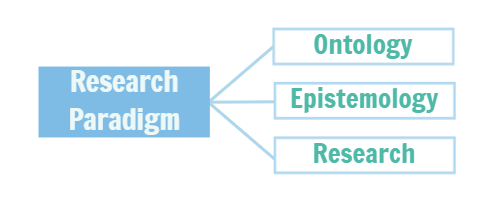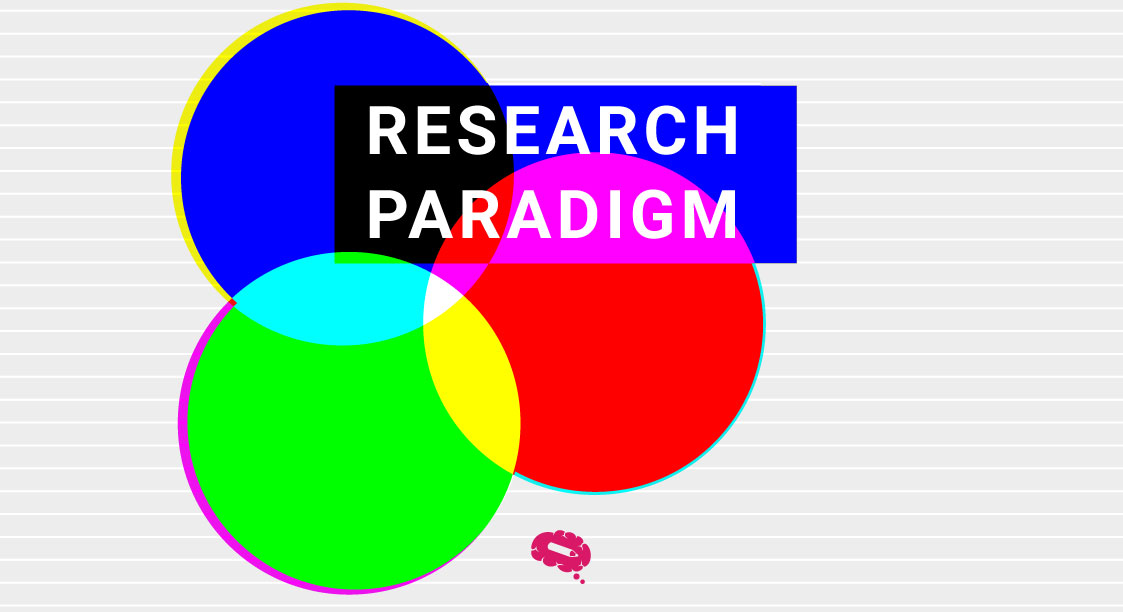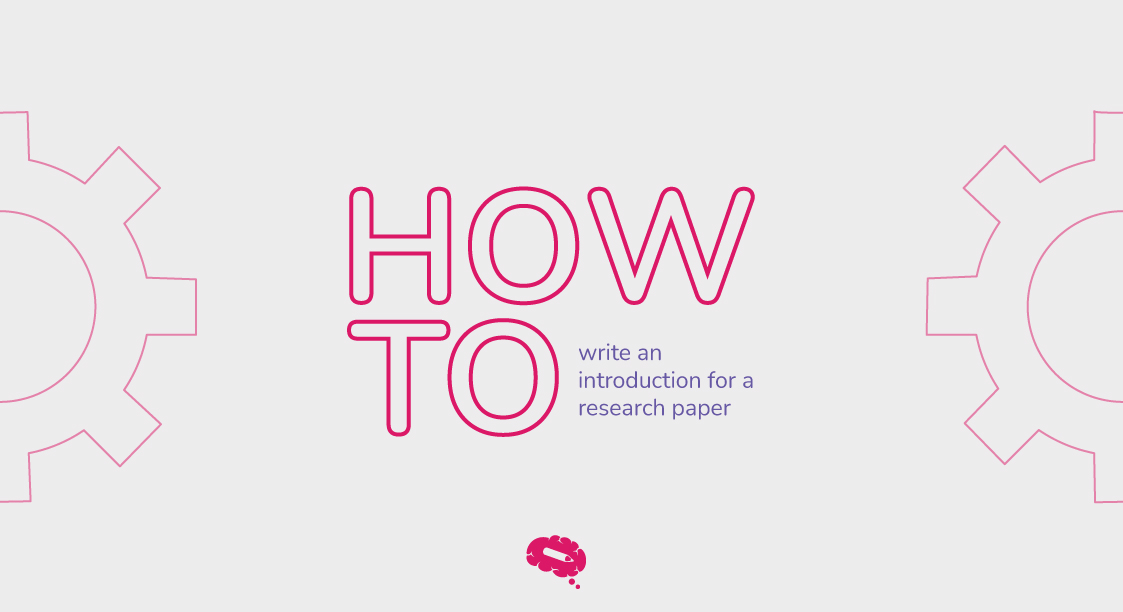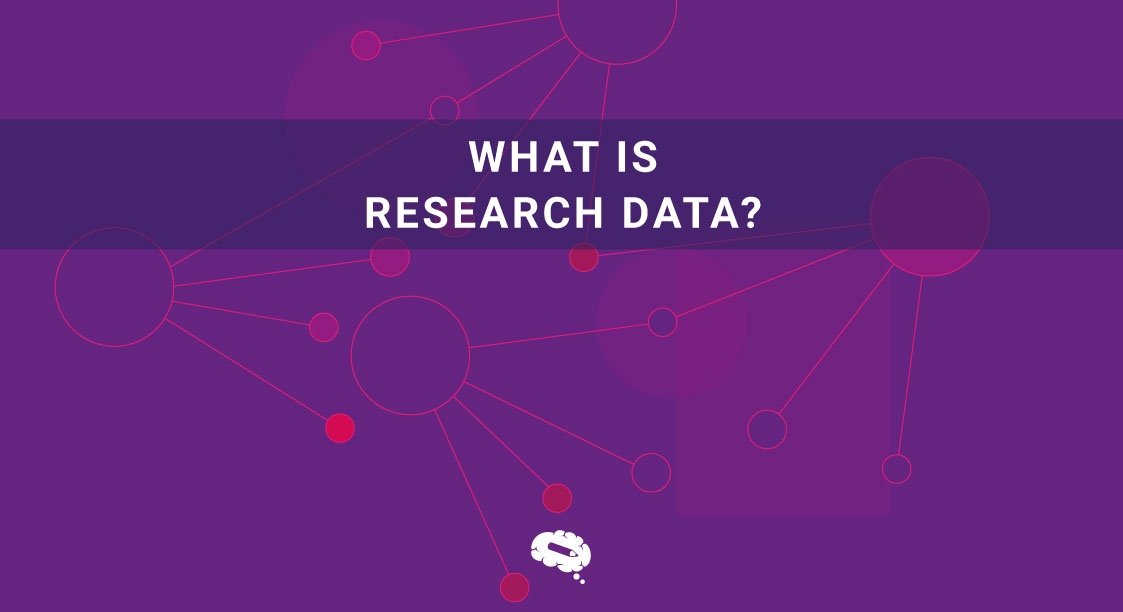If you are considering writing a research paper, you should be aware that you must set criteria for constructing the approach you will use as a methodology in your work, which is why you must comprehend the concept of the research paradigm.
A research paradigm, in simplest terms, is the process of constructing a research plan that can assist you in quickly understanding how the theories and practices of your research project work.
The purpose of this article is to introduce you to research paradigms and explain them to you in the most descriptive way possible using examples.
What is a research paradigm?
A research paradigm is a method, model, or pattern for conducting research. It is a set of ideas, beliefs, or understandings within which theories and practices can function. The majority of paradigms derive from one of two research methodologies: positivism or interpretivism. Every research project employs one of the research paradigms as a guideline for creating research methods and carrying out the research project most legitimately and reasonably.
Though there were essentially two paradigms, various new paradigms have arisen from these two, particularly in social science research. Keep in mind that selecting one of the paradigms for your research project demands a thorough understanding of the unique characteristics of each approach.
What are the 3 paradigms of research?
To select the best research paradigm for your project, you must first comprehend the three pillars: ontology, epistemology, and methodology.
Ontology
Ontology is a philosophical theory regarding the nature of reality, asserts that there is either a single reality or none at all. To be more specific, ontology answers the question, “What is reality?”
Epistemology
Epistemology is the study of knowledge, focusing on the validity, extent, and ways of gaining knowledge. Epistemology seeks to address the question, “How can we know reality?“
Methodology
Methodology refers to general concepts that underpin how one explores the social environment and proves the validity of the knowledge gained. The methodological question is “How to go about discovering the reality/answer?“

What is the purpose of a research paradigm?
The importance of choosing a paradigm for a research project stems from the fact that it establishes the foundation for the study’s research and its methodologies.
A paradigm investigates how knowledge is understood and researched, and it explicitly outlines the objective, motivation, and expected outcomes of the research.
The proper implementation of a research paradigm in research provides researchers with a clear path to examine the topic of interest.
As a result, it gives a logical and deliberate structure for carrying it out, besides improving the quality of your work and your proficiency.
Research paradigms examples
Now that you understand the three pillars and the importance of the research paradigm, let’s look at some examples of paradigms that you may use in your research.
Positivist Paradigm
Positivists believe in a single reality that can be measured and understood. As a result, quantitative approaches are utilized to quantify this reality.
Positivism in research is a philosophy related to the concept of real inquiry. A positivism-based research philosophy employs a rigorous approach to the systematic study of data sources.
Interpretivism or Constructivism Paradigm
The interpretivism approach is used in the majority of qualitative research conducted in the social sciences; it is predicated on the existence of numerous realities rather than a single reality.
According to interpretivists, human behavior is complex and cannot be predicted by predefined probability.
Human behavior is not like a scientific variable that can be easily controlled. The word interpretivism refers to methods of gaining knowledge of the universe that rely on interpreting or comprehending the meanings that humans attach to their behaviors.
Pragmatism Paradigm
The research question determines pragmatism. Depending on the nature of the research issue, pragmatics may incorporate both positivism and interpretivism approaches within a single study.
It is a problem-solving philosophy that maintains that the best research techniques are those that contribute to the most effective answer to the research issue. This is followed by an examination of many aspects of a research problem using a combination of quantitative and qualitative approaches.
Postpositivism Paradigm
The positivism paradigm gave way to the postpositivism paradigm, which is more concerned with the subjectivity of reality and departs from the logical positivists’ objective perspective.
Postpositivism seeks objective answers by striving to recognize and deal with such biases in the ideas and knowledge developed by researchers.
Build a graphical abstract that perfectly represents your findings
Graphic abstracts are becoming significantly important. But where to begin? How should you go about creating the appropriate graphical abstract for your article?
Mind The Graph is the ideal tool for this; utilize templates to easily create the most qualified graphical abstract for your target audience.


Subscribe to our newsletter
Exclusive high quality content about effective visual
communication in science.





